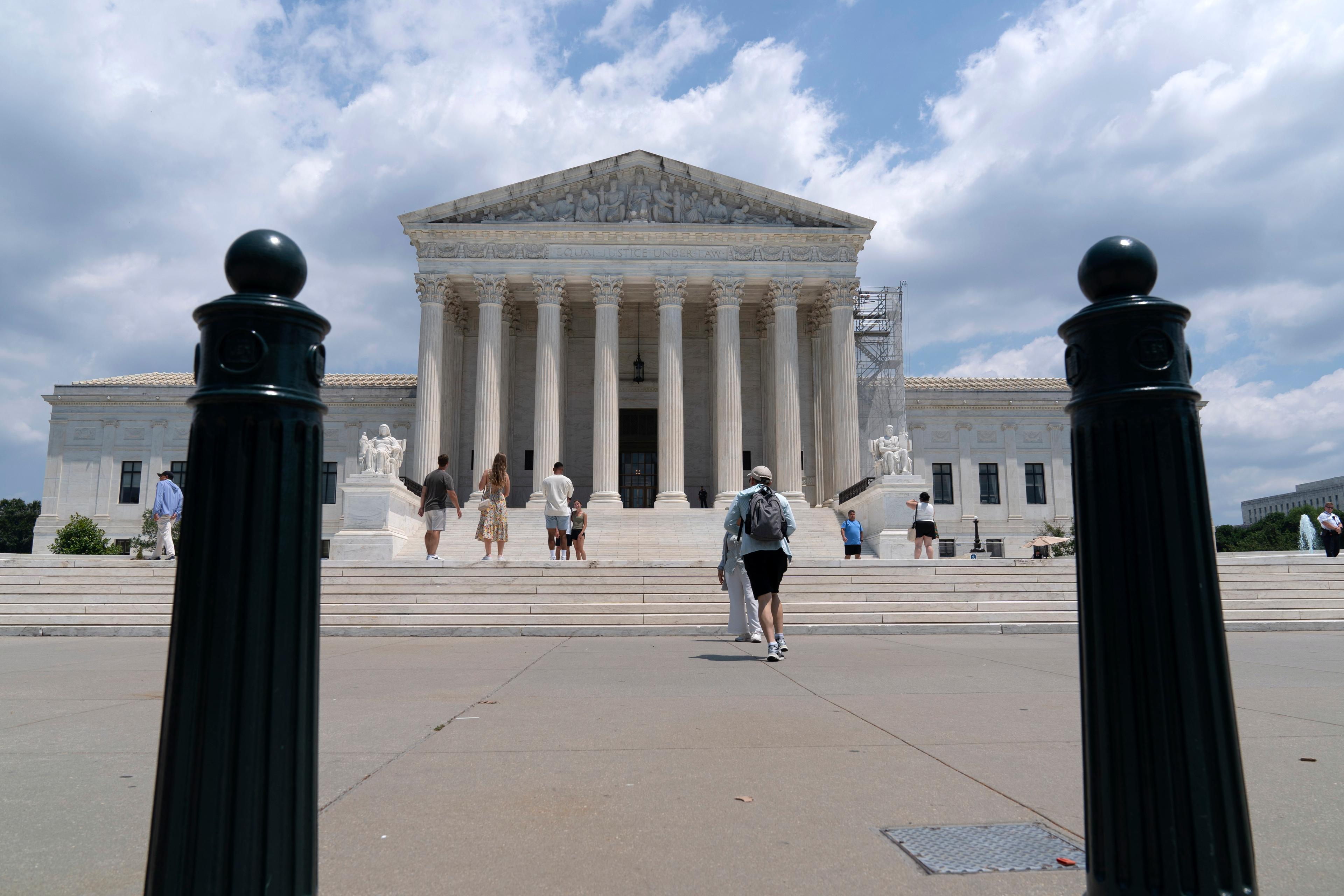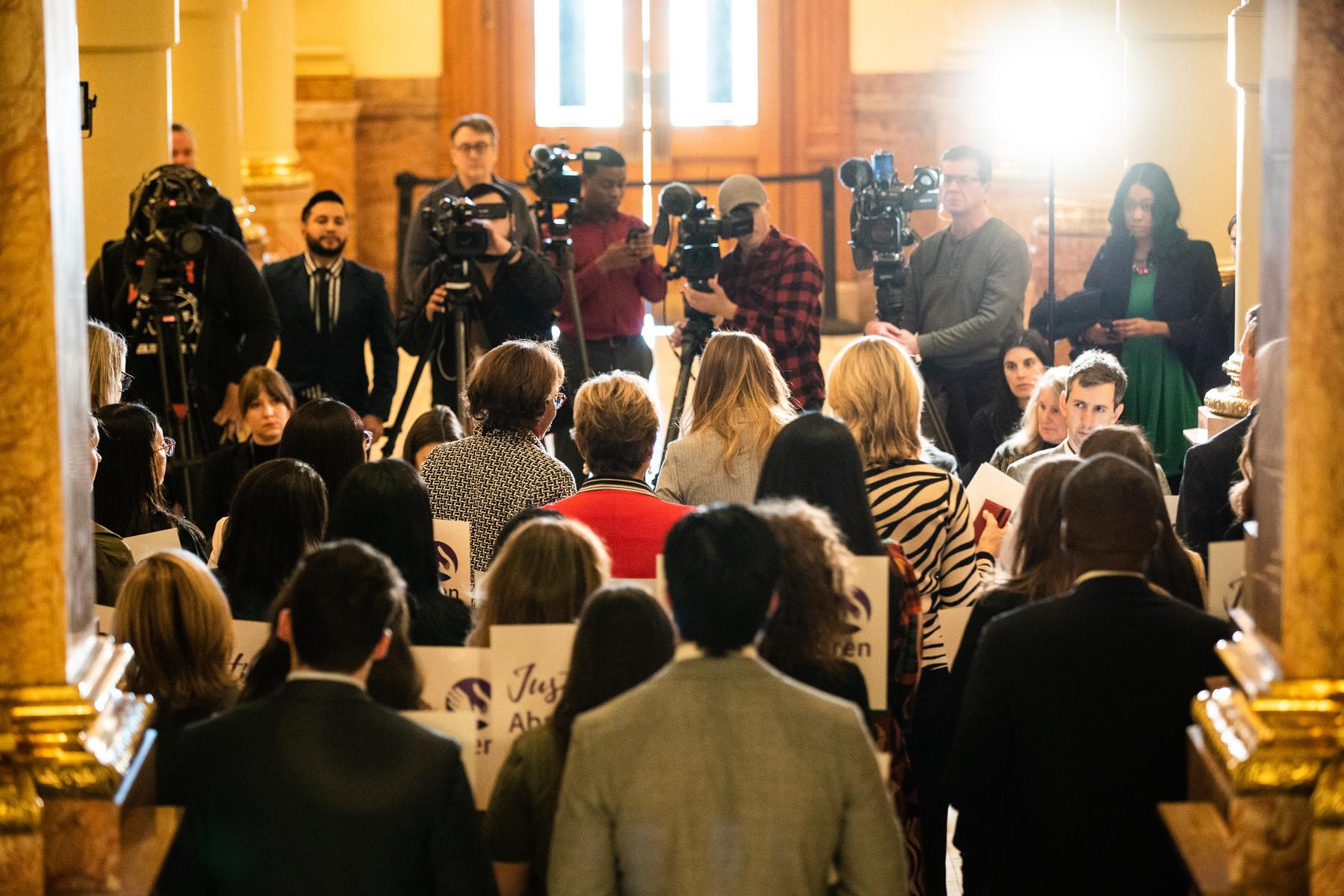It’s a pretty sweet deal. Three men, facing tens of thousands of dollars in fines for campaign finance violations, wound up getting slapped with the equivalent of a parking ticket. But how? CPR's Megan Verlee takes us through one tale of campaign finance waivers. Then Megan talks with host Ryan Warner about how the public can use the same database she did to find this story.
Access Colorado's campaign finance database, TRACER (a link on this page leads to a series of short video tutorials)
This story is part of the State Integrity Investigation, a collaboration with the Center for Public Integrity. You can listen to all of CPR's stories in the series. The Integrity Investigation gave Colorado a D+ on its Corruption Risk report card. See how they reached that grade at their website.
[The following is a transcript of Megan verlee's report]
Reporter Megan Verlee: This story starts with a caper, of sorts. Well, not the kind of caper where a wise-cracking group of misfits rob the biggest casino in Vegas. No, the caper this group of men pulled off was something rather different; they managed to get three initiatives onto the statewide ballot without ever filing a single campaign finance report. At the time, Democratic attorney Mark Grueskin led a civil suit against the initiatives. He said he’d never seen anything like it.
Mark Grueskin: "Money was being spent to change the law. But no one was willing to say where the money came from, or how it was being spent."
Reporter: You might remember these initiatives as Amendments 60, 61, and Proposition 101 from the 2010 ballot. They would have cut Colorado taxes and restricted state finances in some big ways. The three men who originally registered the initiatives claimed they had no idea who actually spent the money to get them on the ballot. And since it wasn’t them, they didn’t have to file anything. A few months before the election, a judge disagreed. Here’s a bit of his ruling, read by a CPR producer.
Court Ruling: "Their testimony that they were unaware of and did not care who their benefactor was is not believable and demonstrates intent to hide the identity of that benefactor from public disclosure."
Reporter: With a few months left before the election, the judge fined each man two-thousand dollars and ordered them to each file a committee with the state and log at least one report listing contributions from their Mr X, revealed to be anti-tax crusader Doug Bruce. They didn’t. At least: not until 15 months later, after they’d racked up tens of thousands of dollars in late fines. And then something interesting happened.
Woman: "Well you can do a penalty search from here. Oh yeah, there is a penalty search..."
Reporter: This is the sound of a training session I recently went through with staff at the Secretary of State’s office to brush up on Colorado’s campaign finance database.
Woman: "And so here it will tell you the committee’s name, description of the type of fine that might have been occurring and whether or not they requested a waiver.”
Reporter: “Wow, these guys got almost everything waived."
Reporter: 'These guys' were Jeff Gross, Louis Schroeder, and Russell Haas. I tried to contact them to ask about their delay in filing and their waiver requests, but they either didn’t respond, or didn’t want to be interviewed by public radio. In the months after the court order, state officials sent numerous invoices, warning them the fines were mounting. In the end, the total bill rang in at more than twenty thousand dollars apiece in campaign finance fines. Then last fall, the three men filed their forms. And they immediately asked for, and were eventually granted, waivers, knocking those fines down to $50 each. Secretary of State Scott Gessler says that’s part of his policy to reduce fines for committees with no activity.
Scott Gessler: "If you fine people for doing nothing except failing to file the reports, for spending zero and collecting zero, if you fine them $23,000, that is a punishment that does not fit the crime."
Reporter: There are two ways to look at this. It’s true the men didn’t have any campaign activity after the judge’s ruling. But the judge had ordered them to disclose past contributions from Doug Bruce in their filings. If they had filed in a timely manner, voters could have seen that information before the election. But Gessler doesn’t count those disclosures as current activity, so he gave them the waiver. And he thinks hitting the men with the full campaign finance fines would have been cruel.
Gessler: "I mean, let me ask you, do you want me to impose a $23,000 fine against local activists so they may lose their homes, because they participate in politics?"
Reporter: A staffer in the Secretary of State’s office did suggest a way to fine the men a couple thousand dollars each, but that option wasn’t used. I asked Gessler what weight he put on the fact the men were ordered by the court to file, and simply ignored that order for more than a year. He said his office does consider willfulness of a violation. But he points out the judge fined the men two thousand dollars each at the time of his ruling, and Gessler feels that was punishment enough, even though the men still took another fifteen months to file the reports ordered by the court.
Gessler: "The judge hit them with a $2,000 fine. I don’t know if they’ll ever participate in a ballot initiative again in their lives. Which is a loss to the state of Colorado, which is a loss to humanity when you’ve deterred people from ever being involved in politics again like that."
Reporter: Mark Grueskin, the Democratic attorney who spent months in court on this case, thinks these waivers undermine all of Colorado’s campaign finance disclosure rules.
Grueskin: "If the official charged with enforcing our campaign finance laws is going to grant a waiver as to the worst violation in the state’s history in terms of campaign finance laws, what does that say about all the lesser violations?"
Reporter: Grueskin disputes much of Gessler's interpretation of the rules when it comes to the waiver. Even some past Secretaries of State were surprised to hear how much the fines were reduced.
Natalie Meyer: "It sounds like they got by with a good deal."
Reporter: Republican Natalie Meyer was Colorado’s longest-serving Secretary of State. She says Gessler acted within his authority, but...
Meyer: "I think letting people get by with skirting the law probably encourages people to skirt the law. If you wait long enough you can get away with it. And that’s not a good policy for any law."
Reporter: But current Secretary of State Scott Gessler says he’s getting the balance right, and that the focus should be on encouraging people to participate in the political process, not scaring them off with threat of big fines.
[Photo Credit: Megan Verlee/CPR]








